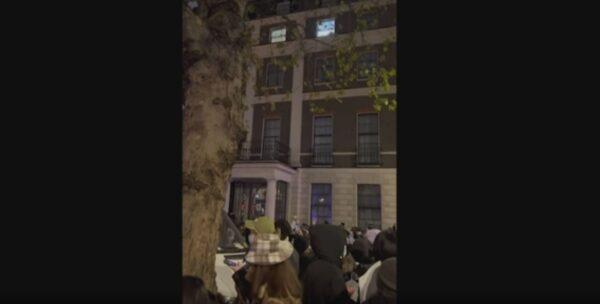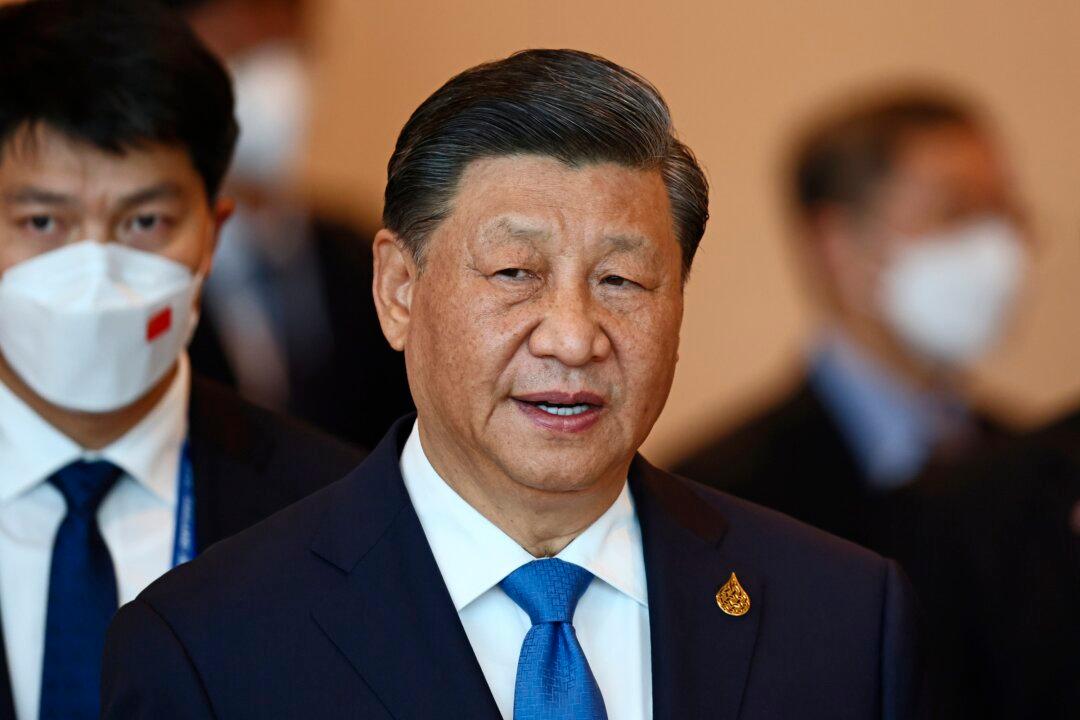The Chinese regime will not be able to move its UK embassy to a historical site in East London after the local council voted unanimously to reject the plan.
The Chinese government purchased the site of the old Royal Mint, which is a short walk from the Tower Bridge, for £255 million ($310 million) in 2018.
According to a planning application submitted by the Chinese embassy in the UK, the regime wanted to develop the site into a new embassy compound. If allowed to go ahead, it would become the largest diplomatic base in the UK and would be 10 times the size of China’s current embassy at Portland Place in central London.

But at a tense meeting on Dec. 1, local councillors of Tower Hamlets unanimously rejected the plan despite recommendations from advisers for the new diplomatic hub to be approved.
Following the vote, a spokesperson for the Tower Hamlets Council said that its Strategic Development Committee had “resolved to reject the application due to concerns over the impact on resident and tourist safety, heritage, police resources, and the congested nature of the area.”
Human Rights Concerns
The rejection followed a public consultation, in which a total of 51 objections were received, mainly concerning China’s human rights record and the proposed new embassy’s impact on local heritage sites and local communities.Human rights NGO, Safeguard Defenders, revealed in its September report that China had set up at least 38 Chinese police “service stations” in dozens of countries across five continents, which are tasked to track down, arrest, and extradite people wanted by the Chinese Communist Party (CCP) regime.
‘Focal Point’ for Protests
Local residents also expressed worries that the large number of protests targeting the Chinese regime may have an adverse impact on the local community.The Chinese embassy in central London has seen regular protests against China’s human rights violations targeting the Falun Gong spiritual movement, Hong Kong pro-democracy activists, as well as Tibetans and Uyghurs.

Housing association Tower Hamlets Homes said: “The current embassy in Portland Place has a significant number of gatherings and lawful protests throughout the year. In line with this experience, it is reasonable to expect that the relocated embassy in its new location will continue to see a sizeable number of gatherings and protests in response to international political events.”
The group said it expected the Royal Mint Green “will become a focal point for protests against the Chinese embassy in the future,” which would “undoubtedly have an adverse effect on the lives of residents on the estate.”
‘Delighted’
Following the vote rejecting the planning application, Councillor Shafi Ahmed, a member of the local Aspire party, said he was “delighted” with the unanimous decision.Talking to NTD news, Ahmed said it was not for him to comment on China’s “controversial” behaviour both at home and abroad, but said: “We need to make sure that we as a borough are safe from any of the political issues around that, and having a high-profile embassy like the Chinese embassy in the borough is a concern for our residents, a concern for our policing, a concern for crime, and a concern for acts of terrorism.”
Conservative Councillor Peter Golds said he was “absolutely delighted” with the “very important” decision, citing the potential damage to the area’s cultural heritage.
He added: “We cannot have this ridiculous complex there that will potentially damage one of the greatest sites in the world. The Tower of London and Tower Bridge are iconic of London. You can’t have people going there as tourists and every time they get off their coaches or get out of the Tube station, they’re going to see a collection of demonstrators.”
Simon Cheng, the founder of Hongkongers in Britain and a Tower Hamlets resident, said he was “very happy and excited” about the result, which he said was “a big win” for Britain’s security and democracy.
Citing the incident at the Manchester Chinese Consulate, he said the UK should not allow authoritarian states to upgrade their facilities and increase their capacity to monitor dissidents and other people in this country.





